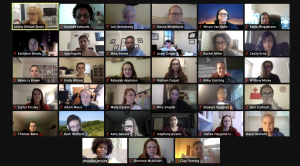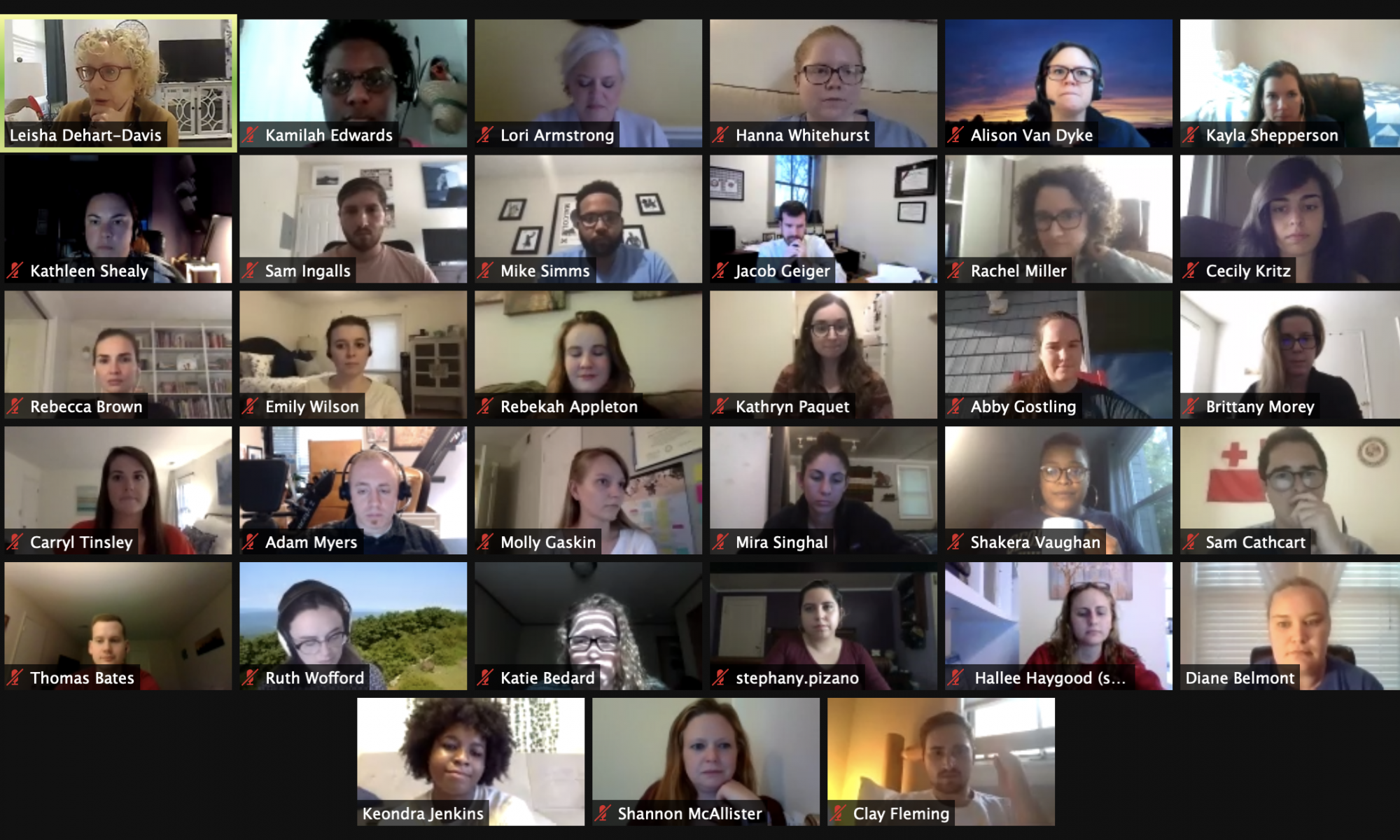
Over the weekend, online and residential UNC MPA students came together virtually to spend two days together learning how to navigate diverse perspectives as public administrators. School of Government and MPA Program faculty member, Professor Leisha DeHart-Davis, delivered a crucial lecture on diversity, equity, and inclusion for those who participated.
The course began with each person reading a novel that was written from a perspective different than their own. I chose to read Tears We Cannot Stop: A Sermon to White America by Michael Eric Dyson, as I wanted to learn more about the experience of a black man in the United States. Dyson is an academic, activist, and a minister. Hearing his perspective on whiteness and how it continually impacts people of color is an treasured educational opportunity.
Before reading the book, we were asked to write a short summary of what we thought the novel was going to be about, including values and beliefs of the author. Once we finished, we were asked to revisit our initial assumptions to see if they aligned. This assignment gave us our first opportunity to listen to and empathize with a person who has experienced the world in a differently than ourselves. Reflecting on the differences and similarities set us up well for the two full days of class.
The first day focused on understanding and recognizing implicit biases, so each of us can continually dismantle them as we progress through our life and careers. Much of the conversation stemmed from theories of recognizing implicit bias and practical approaches to addressing them in ourselves and organizations. We also discussed the consequences of when biases go undressed and the impact it can have on our work in the public sector and the people we serve.
On the second day, the class took a deep dive into discussing individual identities. An important aspect of this conversation centered around understanding the hurtful impact of making assumptions based on peoples’ identities. Additionally, when a person is speaking from their specific identity and others do not listen or invalidate their experience, this can create a more challenging atmosphere for success.
Through this class, I learned the importance of taking the time to analyze oneself to discern the impact one can have on the wellbeing of others. As an individual pursuing a career within the public sector, carrying the lessons from this class is crucial to ensuring that I am serving people equitably. I have a responsibility to understand that everyone experiences the world a little differently and that is okay. I must ensure that I am doing my part as a public servant to promote inclusion in all spaces and remain empathetic to the needs of others.
During the final reflection as a class, many people praised the class content and suggested that it be regularly offered as part of the curriculum. As current and future public administrators, we are called to ensure equity in our work and inclusion to help those who need the services provided by public servants. Professor DeHart-Davis’s course was a clear demonstration of why equity is a core value of Public Administration.


